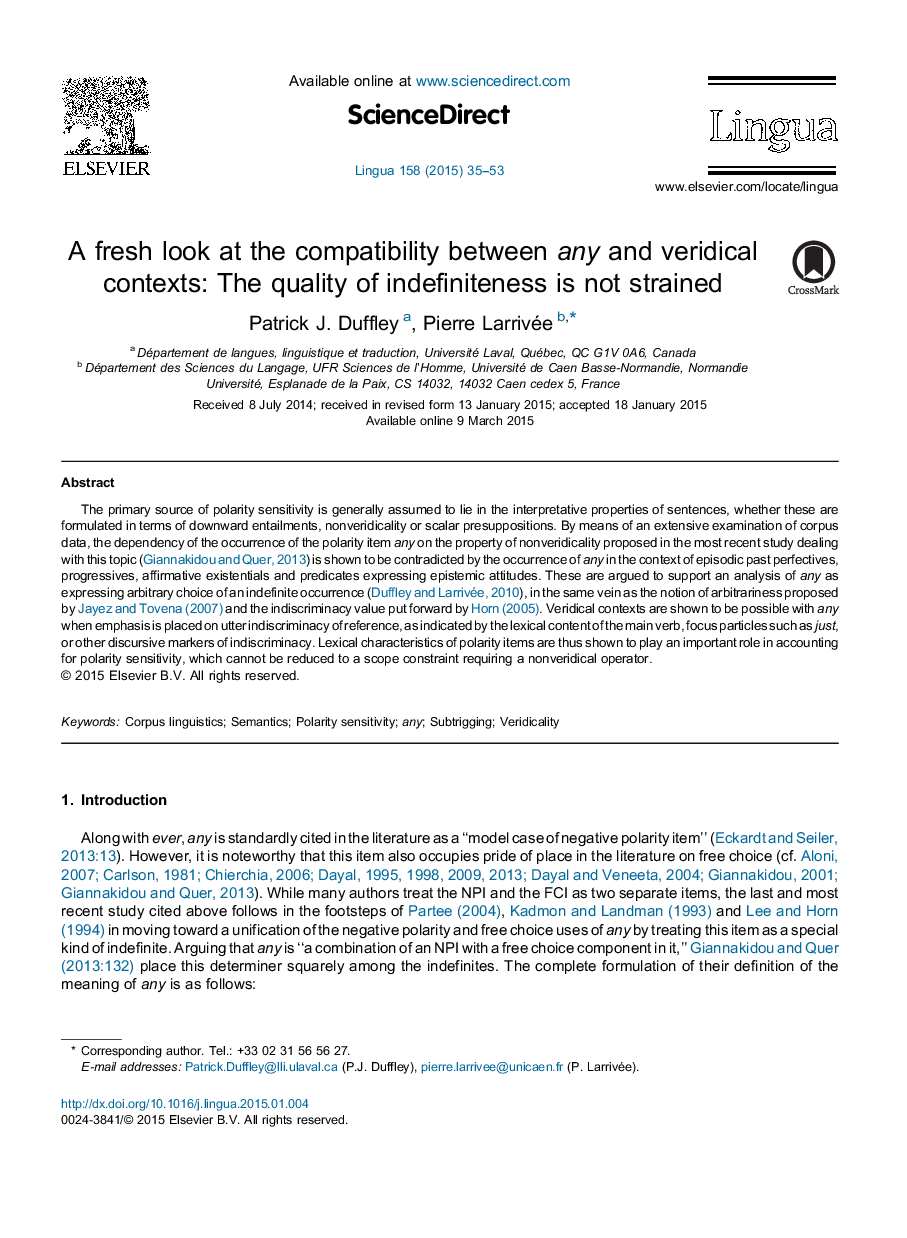| Article ID | Journal | Published Year | Pages | File Type |
|---|---|---|---|---|
| 935386 | Lingua | 2015 | 19 Pages |
•Provides novel data on the distribution of English “any”.•Contradicts licensing by a blanket contextual condition of nonveridicality.•Argues that lexical characteristics of individual polarity items play a role in accounting for their sensitivity.
The primary source of polarity sensitivity is generally assumed to lie in the interpretative properties of sentences, whether these are formulated in terms of downward entailments, nonveridicality or scalar presuppositions. By means of an extensive examination of corpus data, the dependency of the occurrence of the polarity item any on the property of nonveridicality proposed in the most recent study dealing with this topic ( Giannakidou and Quer, 2013) is shown to be contradicted by the occurrence of any in the context of episodic past perfectives, progressives, affirmative existentials and predicates expressing epistemic attitudes. These are argued to support an analysis of any as expressing arbitrary choice of an indefinite occurrence ( Duffley and Larrivée, 2010), in the same vein as the notion of arbitrariness proposed by Jayez and Tovena (2007) and the indiscriminacy value put forward by Horn (2005). Veridical contexts are shown to be possible with any when emphasis is placed on utter indiscriminacy of reference, as indicated by the lexical content of the main verb, focus particles such as just, or other discursive markers of indiscriminacy. Lexical characteristics of polarity items are thus shown to play an important role in accounting for polarity sensitivity, which cannot be reduced to a scope constraint requiring a nonveridical operator.
